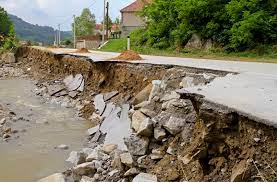Environmental hazards are events or conditions that pose a threat to the health and well-being of human populations and ecosystems. Natural disasters, pollution, and climate change are among the most significant environmental hazards facing our world today. In this article, we will discuss some of the most common environmental hazards and the remedial measures that can be taken to mitigate their impacts.

1. Natural Disasters: Earthquakes, hurricanes, floods, and droughts are natural disasters that can have devastating impacts on the environment and human communities. To mitigate the impacts of these disasters, it is important to invest in early warning systems, disaster risk reduction strategies, and preparedness plans.
2. Pollution: Air, water, and soil pollution are serious environmental hazards that pose a threat to human health and ecosystems. To address this problem, it is important to implement regulations and enforce laws that prohibit industrial pollution and ensure that companies adopt best practices for waste management.
3. Climate Change: Climate change is a global phenomenon that is having a significant impact on the environment. Rising temperatures, sea levels, and more frequent and intense weather events are among the most notable impacts of climate change. To address this issue, it is necessary to transition to clean energy sources, reduce greenhouse gas emissions, and implement measures to adapt to the impacts of climate change.
4. Chemical Spills: Chemical spills can have serious impacts on the environment and human health. To prevent spills from occurring, it is important to have proper storage facilities, secure transportation methods, and contingency plans in place. In the event of a spill, it is crucial to respond quickly and effectively to minimize the impact on the environment and human health.
5. Waste Management: Improper waste management is a major environmental hazard that contributes to air, water, and soil pollution. To reduce the risk of environmental hazards associated with waste management, it is important to implement waste reduction, reuse, and recycling programs, as well as regulations for the safe disposal of hazardous waste.
In conclusion, environmental hazards pose a serious threat to the health and well-being of human populations and ecosystems. To mitigate the impacts of these hazards, it is essential to take proactive measures such as implementing regulations, investing in early warning systems, and adopting sustainable practices. By taking action to address environmental hazards, we can help to ensure a healthier and more sustainable future for all.